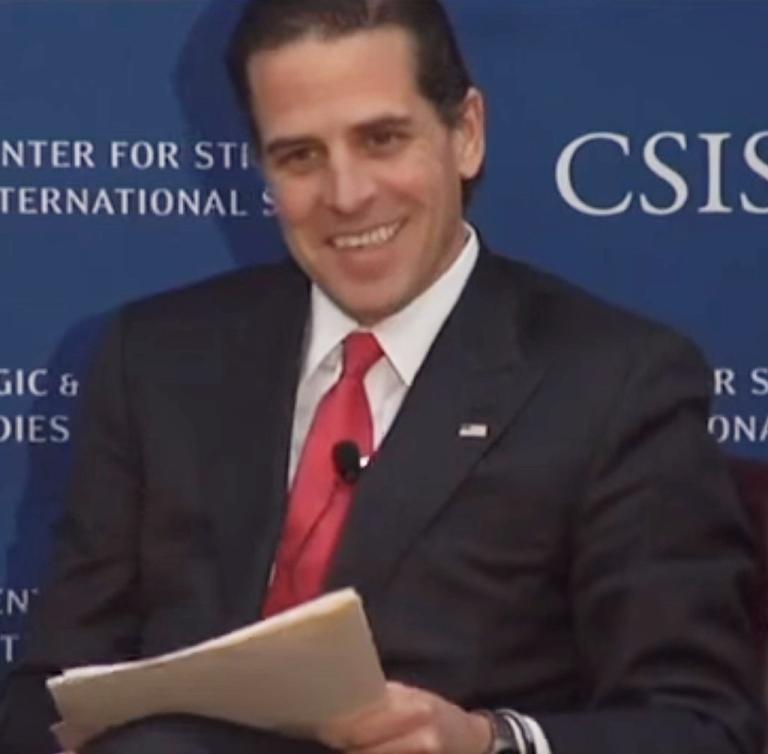Before leaving office, still-President Biden pardoned his son Hunter. Not just for the tax and gun crimes he was recently convicted for but for any “offenses against the United States which he has committed or may have committed or taken part in during the period from January 1, 2014, through December 1, 2024.”
Such a broad and all-inclusive presidential pardon is unprecedented. So observes Aaron Blake in his Washington Post article The Extraordinary Breadth of Hunter Biden’s Pardon:
President Joe Biden’s pardon of his son, Hunter Biden, on Sunday is exceptional not just because of the pardon’s recipient — the closest family member to receive a pardon in history — but also for its sheer breadth, according to experts on presidential pardons.
Biden didn’t just pardon his son for his convictions on tax and gun charges, but for any “offenses against the United States which he has committed or may have committed or taken part in during the period from January 1, 2014, through December 1, 2024.”
That’s a nearly 11-year period during which any federal crime Hunter Biden might have committed — and there are none we are aware of beyond what has already been adjudicated — can’t be prosecuted. It notably covers when he was appointed to the board of the Ukrainian energy company Burisma in 2014 all the way through Sunday, well after the crimes for which he was prosecuted.
Hunter Biden hasn’t been charged for his activities with regard to Burisma or anything beyond his convictions, and nothing in the public record suggests criminal charges could be around the bend. Congressional Republicans have probed the Burisma matter and Hunter Biden extensively and could seemingly have uncovered chargeable crimes if they existed, but haven’t done so.
Even still, the scope of the pardon is remarkable. Experts say there is little to no precedent for a pardon covering such a wide range of activity over such a long period, with the closest being Gerald Ford’s 1974 pardon of Richard M. Nixon after Nixon resigned post-Watergate.
The president is certainly within his power to issue pardons. It’s clearly stated in the Constitution. The section that defines the powers of the Chief Executive, Article II, Section 2, says this:
The President shall be Commander in Chief of the Army and Navy of the United States, and of the Militia of the several States, when called into the actual Service of the United States; he may require the Opinion, in writing, of the principal Officer in each of the executive Departments, upon any Subject relating to the Duties of their respective Offices, and he shall have Power to grant Reprieves and Pardons for Offences against the United States, except in Cases of Impeachment.
I would think this would clear the way for once-and-future President Trump to pardon the January 6 rioters, along with anyone caught up in all the charges against him, which are sure to be dismissed now. In pardoning Hunter, Biden said that the charges against him were politically-motivated, thus admitting what Trump has been saying all along, that our system of justice has been co-opted to wreak political retribution. This will tee up the reform of the Justice Department that Trump has been threatening. Now it won’t have to just be about him, but about the overall problem of “lawfare,” which could conceivably be waged against any citizen. (As in the case of the Colorado baker who keeps getting charged, even after judges keep throwing out the case, as a punishment for his religious convictions against same-sex marriage.)
I am intrigued by another dimension of these pardons. They are something of a picture of the pardon the Chief Executive of the Universe gives for us. The pardon we receive is far broader and more inclusive than what Biden issued for his son. We are guilty of a whole life full of sin. We stand convicted under God’s Law. And yet, God has issued us a complete, comprehensive pardon.
But there is much more than that. Our sins have been atoned for. That is the difference with a presidential pardon. The debt that we owe has been paid. The punishment that justice demands has been carried out.
Biden pardoned his son, something that we parents might do for our own children if we had the power to do so. But God did not pardon His Son. Rather, God laid on Him our crimes.
It has become theologically fashionable these days–even among some Catholics; even among some Evangelicals–to downplay or even deny the doctrine of the Atonement. If God wants to forgive sins, He can just forgive them. Punishing His Son for what we have done is unjust, and we know God is always just. Theological Liberals are calling the Atonement “cosmic child abuse.” Others aren’t so blasphemous, but they reduce Christ’s crucifixion to a tragedy, a sign of how sinful we are, or, more positively, a sign of how much Jesus loves us.
But the Atonement must be connected to the other Christians doctrines; in particular, the Incarnation, the Deity of Christ, and the Trinity. Also, God’s omnipotence.
What if, instead of writing out a pardon that frees Hunter from the consequences of his crimes, President Biden said, “Look, my son Hunter is guilty. So I will go to jail in his place.”
Human analogies to God always fail, but that is more what God has done. The crucifixion of Jesus is the crucifixion of God the Son. The Atonement is the action of the Triune God. The Son’s sacrifice of Himself to the Father on our behalf is a self-sacrifice on the part of the Holy Trinity.
And there is an ontological dimension to the Atonement. “For our sake he made him to be sin who knew no sin, so that in him we might become the righteousness of God” (2 Corinthians 5:21). It wasn’t just that Jesus bore our sins in some symbolic way. Rather, the Father made the Son to be sin.
St. Peter also emphasizes the physical reality of Christ’s sin-bearing: “He himself bore our sins in his body on the tree, that we might die to sin and live to righteousness. By his wounds you have been healed” (1 Peter 2:24).
Not only that, the efficacy of Christ’s atonement for our sins is also an ontological reality. Christ’s sacrifice is efficacious for us because we are united with Him. Thus, we have died with him on His Cross and been raised from the dead with Him to a new life.
We are united with Christ by His Word and Sacraments, which we receive by faith. “I have been crucified with Christ,” says St. Paul. This is not a figure of speech. He really has been. He can hardly be clearer: “It is no longer I who live, but Christ who lives in me. And the life I now live in the flesh I live by faith in the Son of God, who loved me and gave himself for me” (Galatians 2:20).
Note the special role of baptism in connecting us to the death and resurrection of Christ:
Do you not know that all of us who have been baptized into Christ Jesus were baptized into his death? We were buried therefore with him by baptism into death, in order that, just as Christ was raised from the dead by the glory of the Father, we too might walk in newness of life.
For if we have been united with him in a death like his, we shall certainly be united with him in a resurrection like his. We know that our old self was crucified with him in order that the body of sin might be brought to nothing, so that we would no longer be enslaved to sin. For one who has died has been set free from sin. Now if we have died with Christ, we believe that we will also live with him. We know that Christ, being raised from the dead, will never die again; death no longer has dominion over him. For the death he died he died to sin, once for all, but the life he lives he lives to God. So you also must consider yourselves dead to sin and alive to God in Christ Jesus. (Romans 6:3-11)
This is not figurative language. These are mighty realities.
But how could this be? How can our sins be moved around and transferred to someone else? How can we be united with someone who lived 2000 years ago? How can someone’s death, even if He is the Son of God, bring about pardon for our sins?
We might as well ask how God created the universe or how God could become a man. The Atonement is a mind-blowing miracle of that magnitude.
Photo: Hunter Biden by Center for Strategic & International Studies, CC BY 3.0 <https://creativecommons.org/licenses/by/3.0>, via Wikimedia Commons












